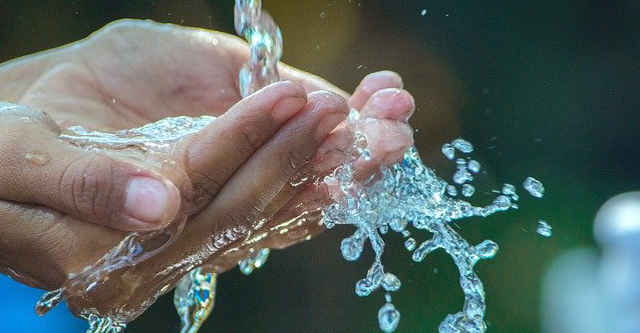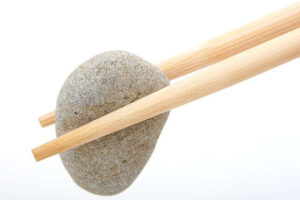We can all support to prevent water pollution. By changing our lifestyles, we can start having new habits that will impact positively. For example, are you used to throwing rubbish away? If your start looking for the correct waste bin instead, a huge change will be made (or you can always take it home and put it in your trash can). Imagine places like the beach, riverside, and parks with no litter around. That’s the dream!
1. Reuse Your Plastic
Do you know how much plastic we consume daily? Tons! Plastic is everywhere, and as it is waterproof, relatively cheap, durable, and versatile, is always our first choice. The truth is that plastic makes our lives incredibly convenient, disposable, and easy, but at what cost for the environment Unlike other materials, it never really goes away. It’s not a surprise that is hard for us to go through our day without acquiring some form of plastic, just think about it, how much plastic have you used today? That’s when reuse comes in. Plastic comes to our hands easily, so we have many chances to be creative and find different usages for it. You can reuse bags, food containers, even plastic silverware!
2. Reduce Your Plastic
If reusing plastic is not something you are used to, you can always start by trying to reduce your consumption of plastic. The most effective way to reduce water pollution is to not create plastic that pollutes in the first place. Reduce and refuse! Looking for products that use less packaging could be a good idea, or even looking for stores that allow you to take your own containers instead of giving you disposables ones.
3. How We Treat Our Garden
It’s important to remember that how we treat nature around us also has an impact on the quality of the water around the world. Pesticides and fertilizers are usually chemicals that end up in nearby water resources because of runoffs. So, try not to use them for your gardens and farms or at least minimize the use, that will reduce the impact farming and gardening have on our water and water cycle. A good idea would be to start looking at options of composting and using organic manure instead.
4. Planting Trees
Even if we can’t see the relationship between our surroundings and the oceans, it’s important to know that it is real. For example, planting trees and flowers if you live close to a water body will prevent chemicals from your home to drain into the water when it rains. Have you noticed the few trees we have around us? We cannot imagine the difference it makes to the environment to have plants and trees not only in parks and open spaces, but everywhere in cities and suburbs.
5. Toilets and Wastebaskets
And if your house is not near an ocean or a river, remember that whatever you flush away in your house ends up in one of our big water resources. Remember your toilet is not a wastebasket. Preventing our oceans of being filled with litter starts by properly discarding tissues, wrappers, dust cloths, and other paper goods in a wastebasket.
6. Use Water Wisely
But preventing water pollution is not only about trying not to litter our surroundings. It is really important to use water wisely. We can significantly prevent water shortages and reduce the amount of dirty water that needs treatment just by doing this. Some ideas could be to not keep the tap running when not in use or trying to reduce the amount of water you use in washing and bathing.
7. Chemical Disposal
When washing your dishes, clothes and anything you wash at home try not to throw chemicals, oils, paints, and medicines down the sink drain or the toilet. A good idea would be to check a local environment office that could help you with the disposal of medicines and chemicals. Sometimes there’s even a chemical disposal plan for residents designed by local authorities. These simple ways to prevent water pollution can help us all in the long run.
8. Shopping with Water Pollution in Mind
Have you thought of shopping with water pollution in mind? There are lots of growing companies that have nature as a priority, selling non-toxic cleaners, biodegradable containers and second-hand products. The amount of water polluted is directly proportional to how much our society consumes, and what type of products we consume. Spending a little extra money on products that have less impact on our environment automatically cuts down on water pollution. These simple ways to prevent water pollution can help us all in the long run.
9. Water Pollution and Food
Preventing water pollution is all about changing daily habits and what we consume, and this also applies to what we eat. At present we have far more sustainable alternatives when it comes to food production, like organic farming for example. Some of the benefits this kind of farming brings to our environment are that it uses fewer pesticides, decreases nitrate leaching into groundwater and surface water, and recycles animal wastes back into the farm. Organic farming involves a wider variety of plants which promotes biodiversity, results in better soil quality and it reduces pollution from fertilizer or pesticide run-off. All these things are important to have in mind when buying your vegetables. These simple ways to prevent water pollution can help us all in the long run.
10. Social Media (simple ways to prevent water pollution)
Finally, one of the most effective ways to stand up for our waters is to speak out in support of organizations that protect them, get informed and share these ideas with your friends and family, especially through social media. Enough people taking these simple ideas into actions can help reduce water pollution and keep our planet clean and healthy for future generations.







